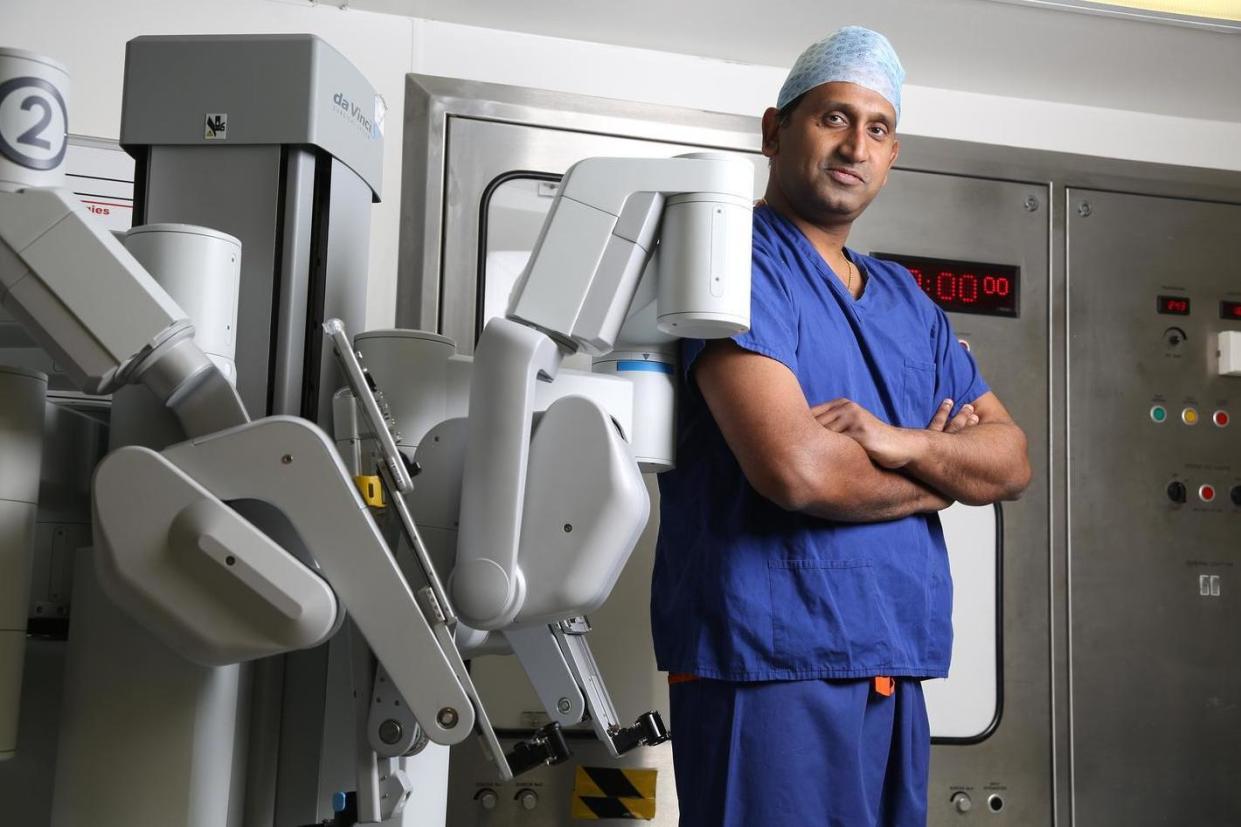Robots used in new prostate cancer surgeries could encourage more young men to go under the knife, top surgeon says

Changing the way robots are used to treat prostate cancer could encourage more men to undergo operations, a top surgeon said today.
A procedure undergoing trials at University College London Hospitals has reduced common side-effects of prostate removal that can deter patients for opting for surgery.
Surgical robots are used in the majority of prostate cancer operations, with UCLH leading the way with about 600 operations last year. The recovery is typically quicker but men are not completely “dry” until about six months afterwards, due to the surgery’s impact on nerves and bladder muscles.
The new approach, led by consultant urological surgeon Prasanna Sooriakumaran, is akin to a car mechanic going under the vehicle to carry out repairs rather than lifting the bonnet.
Trials on 50 patients suggest it could be up to 10 times less likely to leave men suffering from continence problems.
Mr Sooriakumaran, known as PS, said the “retzius sparing” procedure could make surgery more appealing to younger, more active men.
Mr Sooriakumaran, who carries out most of these operations at University College London Hospital at Westmoreland Street, Marylebone, said: “Normally when you do the operation ... you approach the prostate from above. With this new technique, you go towards the rectum and ‘look up’. It’s like being a mechanic lying under the car rather than standing over the engine and fixing things looking down.”
He added: “It’s revolutionising the outcomes for patients. After the catheter comes out, 94 per cent have been dry within a week. Normally it is about 10-15 per cent.”
Prostate cancer is the second most lethal cancer among men in the UK after lung, and kills 11,800 a year. Only 7,000 men a year opt for surgery.

 Yahoo News
Yahoo News 
